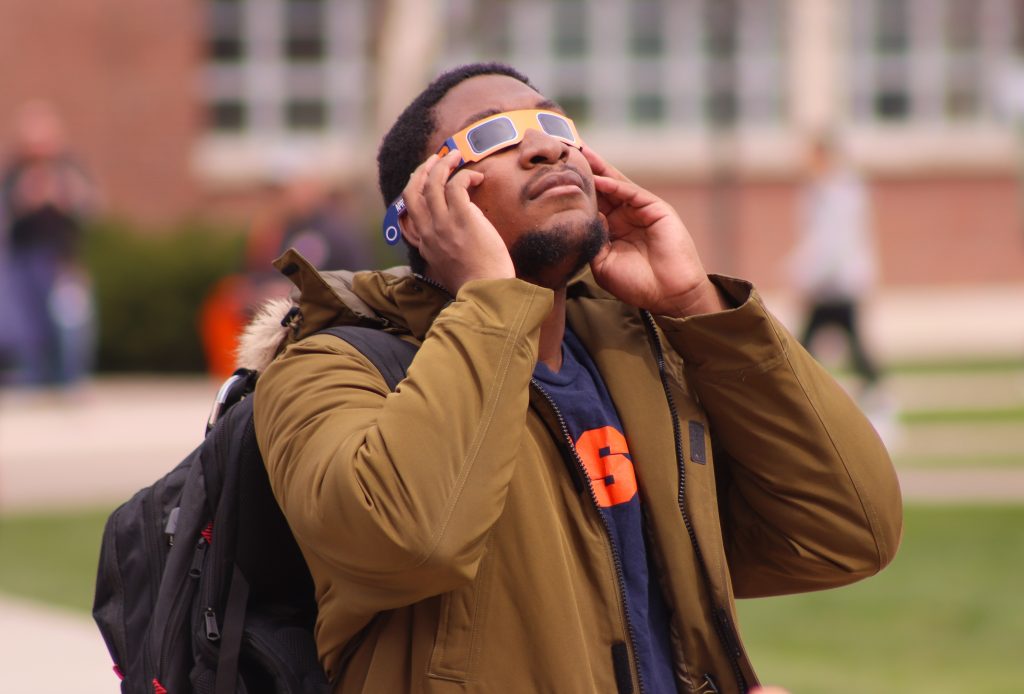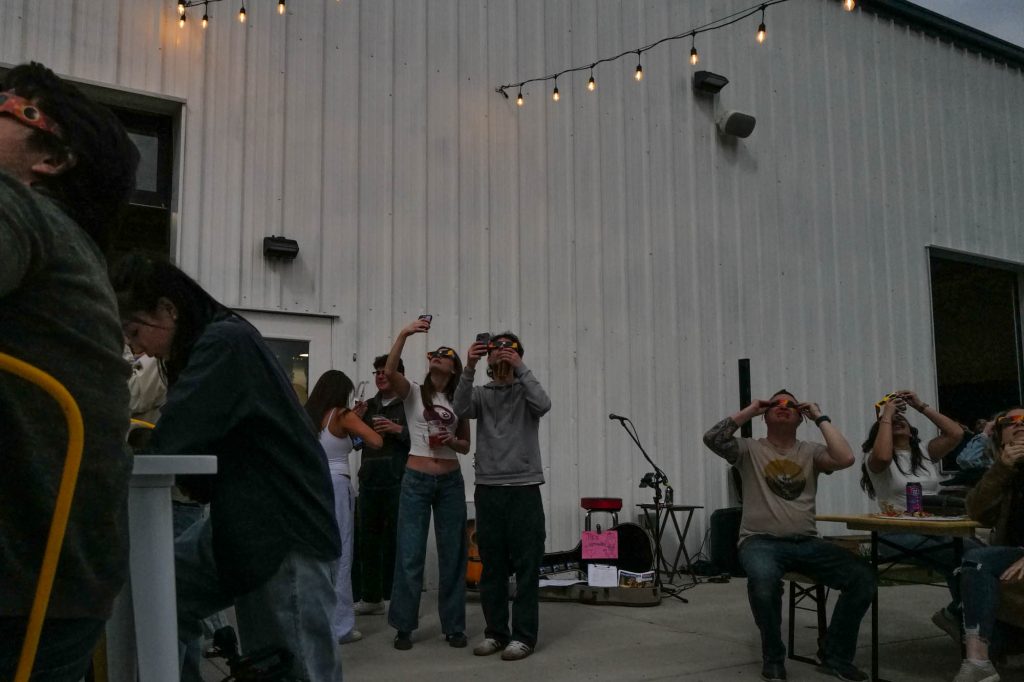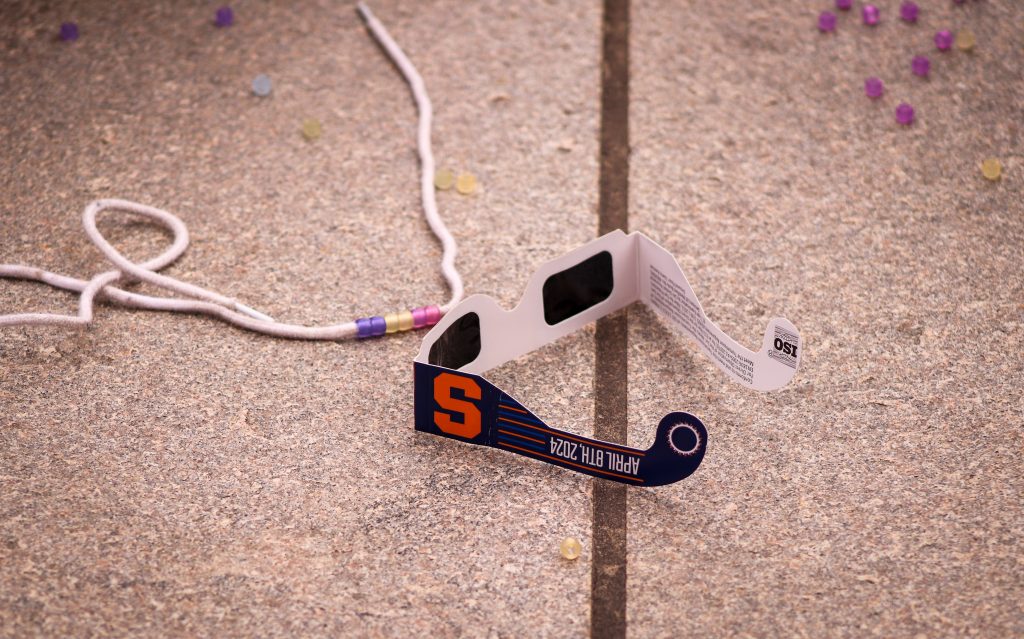The eclipse experience
The eclipse experience
From majestic to anti-climatic, here’s what the campus community had to say about Monday’s celestial event.

For the first time in nearly a century, Syracuse experienced a total solar eclipse on Monday afternoon. Hundreds gathered on the Shaw Quad, among many places on the Syracuse University campus where students, faculty and visitors could see the total eclipse from 3:23 p.m. to 3:24 p.m.
In anticipation of the event, many acquired eclipse glasses, bolted outdoors to view and some even skipped classes.
Journalism students at the Newhouse School surveyed more than 160 individuals about their preparations and experiences during the total solar eclipse. Here are some key data points.
A special occasion
Syracuse won’t be in the path of totality for another estimated 375 years, and many were excited about the event, with a viewing party on the quad and at individual schools and colleges of the university. All of our respondents were aware of the eclipse before it occurred.
On a scale from one to five, with five being the most intrigued, more than 94% of respondents said they were at least mildly interested in the eclipse.
A select handful found the event uninteresting and something not to care about, as one respondent described the eclipse as “anti-climatic.” Others found it “surprisingly cool,” “surreal” and “majestic.”
“It was electric," one respondent said. "I thought it was a hoax. But it was very much real.”
“I’m not a religious person, but it felt like God was glowing through the clouds,” another stated.
Ditching the classroom
The eclipse occurred during the 2:15 p.m. to 3:35 p.m. Monday class period. Some classes were dismissed early, while others were given assignments related to the eclipse. Instead, some students decided to skip class and soak in the rare moment.
Of the 168 respondents, 112 identified as students. Some students were given assignments that ranged from recording sound bites for a journalism class, making something in the Makerspace lab for an entrepreneurship class or completing an extra credit assignment for an earth science class.
Some students were able to skip class as a result of professors either canceling or dismissing early, though some ditched entirely. Of those who skipped class, more than 76% of respondents ranked they cared about the eclipse at a four and five.
“The darty at (Sigma Phi Epsilon) was prime college life,” one respondent said. “Mid-Monday, everyone drinking, skipping class and cheering for the moon.”

Hot commodity
Solar eclipse glasses were a necessary acquisition for those viewing the eclipse, which can cause permanent eye damage without proper eyewear. Syracuse University handed out free, branded glasses, while many retailers offered them in bulk.

The majority of respondents, comprising 74%, received glasses for free. While 43 individuals purchased eclipse viewing glasses, some bought them as early as three months ago, with others buying them the day of the eclipse. Prices ranged from $1 to $20 with 86% of respondents purchasing glasses for less than $10.
“It was surreal, but I didn’t actually see the sun and moon fully because it was only visible for a second and I was freaking out with my friends and my glasses were falling off,” one respondent said.
Infographics generated from mobile phone survey responses collected by the following students in Professor Dan Pacheco’s JNL 221: Foundations of Data and Digital Journalism course:
Gino Antimarino, Karina Babcock, Caitlyn Begosa, Marguerite Bellotti, Kiran Costa, Grace DeBoer, Brennan Finder, Katie Fongvongsa, Olivia Fried, Sabrina Gao, James Kelly, Grace McHugh, Meredith Taylor and Abby Wright.
